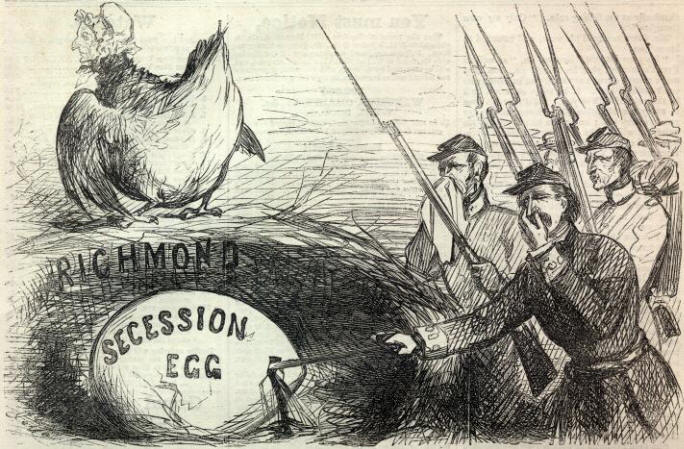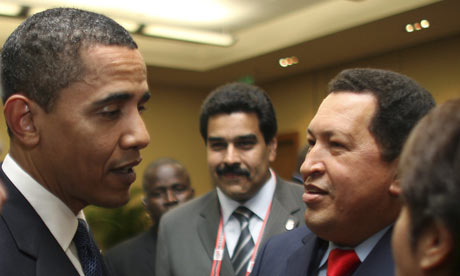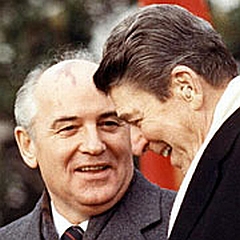“The Federal Reserve was supposed to do this, but they were asleep at the switch.” In light of recent shenanigans, the Obama administration contemplates creating a new regulatory commission for the financial services industry. “Responsibility for regulation of consumer financial products is currently distributed among a patchwork of federal agencies. Some of these regulators regard consumer protection as a low priority. And some financial products are not regulated at all. The proposal could centralize enforcement of existing laws and create a vehicle for imposing tougher rules.” Sounds alright by me.
Tag: Obamanomics
Plastic Surgery.
“‘This is landmark legislation that is going to make the credit card marketplace more transparent and more fair for millions of consumers,’ said Travis B. Plunkett, legislative director for the Consumer Federation of America. ‘In particular, it’s going to prevent credit card companies from suddenly and unjustly increasing interest rates which is pushing many consumers with credit card debt into bankruptcy.’” The Senate passes legislation aimed at reining in the more blatant and arbitrary instances of credit card usury by a vote of 90-5, with a bill expected on President Obama’s desk by Memorial Day.
This sounds like a clear step in the right direction…but funny how times change, isn’t it? It doesn’t seem like all that long ago that many of these same Senators passed the 2005 bankruptcy bill, which dug the financial hole deeper for millions of Americans in the name of an easy buck for the credit card industry. Better late than never, I suppose.
Hedge of No Return.
“But while many stakeholders made sacrifices, some did not. In particular, a group of investment firms and hedge funds that hoped to hold out for a taxpayer-funded bailout. I don’t stand with them. I stand with Chrysler’s employees, management and suppliers. I don’t with stand with those who held out when everybody else made sacrifices.” President Obama announces that Chrysler will file for bankruptcy, and lays the blame squarely at the feet of hedge funds who rejected an 11th-hour deal to save the company, apparently in the hopes of garnering more bailout cash.
The hedge funds in question have fired back, of course. Apparently, they’re all for the “rule of law” and upholding our “world-leading bankruptcy code.” I’d probably be more inclined to take them seriously on these matters if they weren’t also trying to spike regulation of their industry that is long overdue. At it is, i’m thinking profit is more of a motivator here than principled civil disobedience.
At any rate, I think Salon‘s Andrew Leonard is exactly right about where public opinion will come down on this one. Says one observer (cited by Leonard) of what happened today: “The banksters are eagerly, shamelessly, and openly harvesting their pound of flesh from financially stressed average taxpayers, and setting off a chain reaction in the auto industry which has the very real risk of creating even larger scale unemployment than the economy already faces. It’s reckless, utterly irresponsible, over-the-top greed.” From my admittedly limited vantage, that sounds like a plausible reading.
A Republic of Knowledge.
“I believe it is not in our character, American character, to follow — but to lead. And it is time for us to lead once again. I am here today to set this goal: we will devote more than 3 percent of our gross domestic product to research and development. We will not just meet, but we will exceed the level achieved at the height of the space race, through policies that invest in basic and applied research, create new incentives for private innovation, promote breakthroughs in energy and medicine, and improve education in math and science.“
It’s poetry in motion: In a clear break with his predecessor, President Obama pledges $420 billion for basic science and applied research. “And he set forth a wish list including solar cells as cheap as paint; green buildings that produce all the energy they consume; learning software as effective as a personal tutor; prosthetics so advanced that you could play the piano again and ‘an expansion of the frontiers of human knowledge about ourselves and world the around us.’” Huzzah! (And fwiw, I would also like more manned spaced exploration…and a jetpack.)
U.S. History for Dummies.

As many readers here well know, I’ve spent a good bit of time over the past decade studying US history. (In fact, over the past few years, I’ve occasionally helped my advisor keep a textbook up to date that recently drew the ire of right-wing blowhard Bill O’Reilly. Apparently, those damn pesky facts were somehow mitigating O’Reilly’s ability to spew forth the usual idiotic blather.)
Anyway, over that period of time, I believe I have in fact learned me a few things. So, as a public service of sorts, and because, after this morning’s revelations, I’ve reached the limit of craven and/or patently stupid falsehoods that I can feasibly ingest over so short a time, some “U.S. History for Dummies.” I expect most everyone who comes by this site with any frequency knows all this, but ya never know. Apologies for the didacticism in advance — if this were this a Coors Light commercial, this would be where i vent. (And thanks to Lia for the timely visual tax lesson, above.)

At any rate, as most people remember from high school, the original 1773 Tea Party was not a protest against high taxes or high prices at all. (In fact, legally imported tea — i.e. that of the East India Company, which was both suffering serious setbacks over in India and losing market share to smuggled Dutch tea at the time — was actually cheaper in the colonies after the Tea Act, since it was now exempt from the usual obligations.)
In small part a reaction of the East India’s commercial rivals to this sweetheart deal, the Boston Tea Party was mainly held to uphold the principle of No taxation without representation. Which I don’t think I need to explain. So, with the minor exception of DC-area conservatives who attended the tea gathering in Washington (without crossing over from Virginia or Maryland), the, uh, “teabaggers” don’t really have a leg to stand on here. This is particularly true after you consider that both ruthless gerrymandering and the vagaries of the Electoral College (I’m looking at you, Wyoming) actually tend to lead to over-representation of conservative Republicans in our halls of governance, even despite heavy losses for the “Grand Old Party” in 2006 and 2008.

Well, in fact, no state in the Union has any legal right to secede. (Not even Texas.) The existence of such a right was posited and debated quite often in the early years of the republic: by Jefferson and Madison in the Virginia and Kentucky resolutions, by the members of the Hartford Convention, by South Carolina’s philosopher-politician John C. Calhoun, and countless others.
But the illegality of secession was eventually confirmed — in blood — when eleven states attempted to pull out of the Union in 1861, due mainly to differing opinions on the institution of slavery and its expansion into the western territories. As a result of this insurrection by the southern states, a violent conflict broke out, which we call the Civil War. It lasted four years, and it was kind of a big deal.
Prior to the war, the states of the Confederacy believed secession to be their natural right, while those remaining in the Union believed it to be tantamount to an act of treason. With the Union victory in that conflict, and the subsequent readmittance of southern states in such a manner that reaffirmed that no right of secession exists, the question was settled. So it remains to this day.

Another argument we’ve heard lately — today Sen. McCain made it with his usual comrades-in-arms, Sens. Lieberman and Graham, while trying to protect Dubya’s lawyers — is that the CIA officials who actually conducted these recent acts of torture should be exempt from prosecution, because they were following the legal dictates of those higher-up in the administration. (To follow the reasoning around the circle, the torturers should be exempt because they were listening to the lawyers, and the lawyers should be exempt because they didn’t do the actual torturing. Cute.)
Anyway, whatever you think of the merits of this argument, this is usually referred to as the Nuremberg defense, and it is in fact no defense at all. Argues Principle IV of the Nuremberg Principles, devised by the Allies after WWII to determine what constituted a war crime: “The fact that a person acted pursuant to order of his Government or of a superior does not relieve him from responsibility under international law, provided a moral choice was in fact possible to him.” Insert “CIA interrogator” for person in that last sentence and you can pretty much see the problem.

America is not a Christian nation. This will be patently obvious to anyone who’s ever heard the phrase “separation of church and state.” Unlike, say, England, America does not have and has never had an official, established church. This is very much by design. For proof of this not-very-radical claim, see the very first clause of the very first amendment to the Constitution: “Congress shall make no law respecting an establishment of religion, or prohibiting the free exercise thereof.”
If that doesn’t do it for you, see George Washington’s famous 1790 letter to the Jewish residents of Newport, Rhode Island. “May the Children of the Stock of Abraham, who dwell in this land, continue to merit and enjoy the good will of the other Inhabitants; while every one shall sit under his own vine and fig tree, and there shall be none to make him afraid.“
Or consider that Thomas Jefferson skipped his presidency on his tombstone to make room for his authorship of the Virginia Statute for Religious Freedom: “Be it enacted by the General Assembly, That no man shall be compelled to frequent or support any religious worship, place, or ministry whatsoever, nor shall be enforced, restrained, molested, or burdened in his body or goods, nor shall otherwise suffer on account of his religious opinions or belief; but that all men shall be free to profess, and by argument to maintain, their opinion in matters of religion, and that the same shall in no wise diminish enlarge, or affect their civil capacities.” (We could also make mention of the Jefferson Bible, but let’s start slow.)
Is the reasoning here too circuitous for Rove, Gingrich, et al to follow? Ok, then, here’s the cheat sheet: the 1797 Treaty of Tripoli, passed by a Congress of our Founders without declaim and signed into law by President John Adams. It begins: “As the Government of the United States of America is not, in any sense, founded on the Christian religion…” Did y’all catch it this time? Good, let’s move on.

After the picture was taken, conservatives went predictably livid, with Matt Drudge headlining the offending photograph with the usual red text, Dick Cheney deeming Obama “a weak president” on FOX News, and Gingrich arguing that it made Obama look “weak like Carter.” “We didn’t rush over, smile and greet Russian dictators,” said Newt, and he wasn’t the only potential 2012’er aghast at Obama’s behavior. Sen. John Ensign of Nevada called the president “irresponsible” and the consistently shameless Mitt Romney painted Obama a “timid advocate for freedom”.
Um, ok. Well, let’s see here…


I could go on. With regards to that last one — Reagan yukking it up with Mikhail Gorbachev, then of “the evil Empire” — it didn’t take long before (surprise) Newt was caught in a contradiction. Apparently, Gingrich had previously argued on his website that Ronald Reagan’s good humor with Gorby was a sign of strength, not weakness.
Speaking of which, as Lawrence O’Donnell noted on MSNBC the other day, saintly old Ronald Reagan didn’t just smile and shake hands with America’s enemies. His administration sold them weapons under the table. So, please, assorted puddin’-heads of the GOP talkocracy, spare me your warmed-over tripe about poor diplomacy and weak leadership. As with everything else above, I’ve swallowed enough of your swill over the past few weeks to last me a lifetime.
No Better Investment.
“In a remarkable illustration of the power of lobbying in Washington, a study released last week found that a single tax break in 2004 earned companies $220 for every dollar they spent on the issue — a 22,000 percent rate of return on their investment.” A new study by three University of Kansas profs tries to quantify exactly the amount of lucre generated by the lobbyists and influence-peddlers aswarm in Washington for their employers. And the answer? A whole lot. “The paper…examined the impact of a one-time tax break approved by Congress in 2004 that allowed multinational corporations to ‘repatriate’ profits earned overseas, effectively reducing their tax rate on the money from 35 percent to 5.25 percent. More than 800 companies took advantage of the legislation, saving an estimated $100 billion in the process.” [Hattip: Tim C. and Marginal Revolution.]
Show us the Body.
“Even for the hardest-core Obama loyalists, it’s rather difficult to attribute these increasingly harsh condemnations of Obama’s civil liberties, secrecy and executive power abuses to bad motives or ignorance when they’re coming from the likes of Russ Feingold, Talking Points Memo, the Center for American Progress, Nancy Pelosi, EFF, the ACLU, The New York Times Editorial Board, Keith Olbermann, Jonathan Turley, The American Prospect, Bruce Fein, Digby, along with some of the most enthusiastic Obama supporters and a bevvy of liberal law professors and international law experts — those who were most venerated by progressives during the Bush era on questions of the Constitution and executive power.“
Salon‘s Glenn Greenwald surveys the growing progressive consensus that something is rotten at Holder’s DOJ with regard to state secrets and the continuation of Bush-era policies antithetical to, if not downright contemptuous of, civil liberties. (In case you missed it here or here, I’m not happy either.) “That the Obama DOJ has repeatedly embraced the very legal theories responsible for much of the intense progressive rage towards the Bush/Cheney regime is now beyond dispute. The question of motive — of why Obama is doing this — is far less clear.“
Now, obviously, the president has a lot on his plate these days, and a finite amount of political capital with which to achieve an enormous number of objectives. Still, it’s well past time that the administration explain what’s going on on the civil liberties front from start to finish, akin to Obama’s economic overview speech at Georgetown this morning. These are not piddling matters.
We are the World.

In the meantime, Slate‘s Fred Kaplan applauds the return of real, honest-to-goodness American statecraft in London. “Vast multinational conferences, like the G20 summit…are useful mainly for the ‘bilaterals’ — the one-on-one side-room conversations — and, in these forums, President Barack Obama is living up to high expectations. Which is to say, the United States seems to be returning to diplomatic basics — a development that in the wake of the last eight years is practically revolutionary.“
At the very least, the president’s diplomatic mojo seemed to work on Russian president Dmitry Medvedev. “‘Yesterday I spoke about this with my new comrade President Barack Obama,’ Medvedev told reporters travelling with him to the London summit…’I liked the talks. It is easy to talk to him. He can listen. The start of this relationship is good,’ he said, adding: ‘Today it’s a totally different situation (compared to Bush).'”
Obama’s Progressive Solution.
“Officials said the proposal would seek a broad new role for the Federal Reserve to oversee large companies, including major hedge funds, whose problems could pose risks to the entire financial system.” With the AIG bonuses setting the table, the Obama administration prepares to unveil an overhaul of the nation’s financial regulatory apparatus. “It will propose that many kinds of derivatives and other exotic financial instruments that contributed to the crisis be traded on exchanges or through clearinghouses so they are more transparent and can be more tightly regulated. And to protect consumers, it will call for federal standards for mortgage lenders beyond what the Federal Reserve adopted last year, as well as more aggressive enforcement of the mortgage rules.”
Whatever malarkey you hear from the GOP about “creeping socialism” over the next few weeks, keep in mind that no less a Republican than Teddy Roosevelt deemed this sort of solution — accountability, transparency, tighter oversight of the financial sector by the federal government — the “New Nationalism” a century ago. In this arena, at least so far, President Obama seems to be living up to his Progressive promise.
Update: “‘Our system failed in basic fundamental ways,’ Geithner told the committee. ‘Compensation practices rewarded short-term profits over long-term returns. Pervasive failures in consumer protection left many Americans with obligations they did not understand and could not sustain. The huge apparent returns to financial activity attracted fraud on a dramatic scale..,To address this will require comprehensive reform. Not modest repairs at the margin, but new rules of the game. And the new rules must be simpler and more effectively enforced.‘” Secretary of the Treasury Tim Geithner unveils the new regulatory package. [Highlights.] “He said financial products and institutions should be regulated according to their economic function and the risks they pose, not their legal form. ‘We can’t allow institutions to cherry-pick among competing regulators and shift risk to where it faces the lowest standards and weakest constraints,’ he told the committee.”
Paging the Populists…and Howard Beale.

I must confess, I find the very-recent press fascination with its latest toy, “populism,” to be more than a little irritating. This is partly because, as with the “socialism!” craze of a few weeks ago, the discussion — above articles excluded — rarely goes any more than an inch deep, and is clearly fueled more by whatever dodgy sound-bites emanated from the Limbaugh-types that morning than any sort of grounded historical thinking. It’s also because, to my mind, the endless tirade of ignorant, self-satisfied, surface-skimming blather vomited forth by the establishment media these days is as much a cause for a populist uprising as the rapacious greed of the asshats at AIG.
From the manifestly idiotic and off-topic lines of questioning of the White House press corps last night, to partisan hacks like AP’s Ron Fournier carrying water for the broken GOP by pushing dumb memes about teleprompters (see also Rick Santelli a few weeks ago), and from self-important blowhards like Howard Fineman conjuring up nonsense out of thin air about the purported dissatisfaction of his chummy club to the host of distractions and non-issues we are endlessly barraged with these days, the mainstream press is worse than failing us — it’s part of the problem.
This is nothing new, of course. From l’affaire Lewinsky to Judy Miller’s WMD to any number of other issues, the establishment media has been at best lazy, simpering, ratings-driven schlock and at worst dangerously ennabling of corrupt GOP behavior over the years. It’s aggravating at the best of times. But we really can’t afford this idiotic water-carrying for Republcans or the smug sense of entitlement that exudes from every pore of the establishment-media overclass, at the moment, as we try to extricate ourselves from the gimongous economic hole dug over the past eight years.
So, Lou Dobbs and your like, next time you endlessly prattle on about how angry the people are getting at Wall Street and/or Obama right now, just remember: Be careful what you wish for. If push comes to shove, there’s a good bet you’ll end up on the wrong end of the pitchfork as well. (AL link via Liam.)


